What keeps this Israeli leftist in a pro-occupation government?
MK Mossi Raz opens up about being part of a coalition that is 'moving to the right' on the occupation, and whether his Meretz party truly promotes Jewish-Arab partnership.
Knesset member Mossi Raz is not running short on dilemmas these days. Considered by many to be the most left-wing member of the liberal Meretz party, the former secretary general of the anti-occupation group Peace Now — who attends demonstrations against Israel’s military rule on a weekly basis — now serves as a parliamentarian in a governing coalition run by a former head of the Yesha Council, the umbrella organization that attends to the needs of West Bank settlements.
As a key leader in the environmental movement and a vegan who uses and encourages public transportation, Raz has found himself promoting the same environmental policies put forth by the preceding governments of Benjamin Netanyahu. And when it comes to economics, Raz, an avowed social democrat, is navigating his way through a coalition dominated by right-wing neoliberals.
In an interview before the escape of the six Palestinians from Gilboa Prison last month, and before a meeting on Sunday by Meretz ministers with Palestinian President Mahmoud Abbas in Ramallah, I tried to understand how Raz copes with these contradictions. We spoke about why Meretz entered the Bennett-Lapid government in the first place, what are his party’s plans to end the occupation, and whether they would have the power to stop another war on Gaza.
This interview was edited for clarity and length.
Minority governments are nothing new in Israel. The second Yitzhak Rabin government [1992-1995] was supported from the outside by Hadash and the Arab Democratic Party. And more recently, the Joint List endorsed Blue and White’s Benny Gantz as prime minister against Netanyahu. When the current coalition was formed, you said: “We will be part of the government, but we will make trouble. There are things in the Knesset that we do not have to support.” It sounds like Meretz wants to feel as if they are supporting the government from the outside, while in practice they are in the coalition and acting accordingly. Have you discussed the possibility of supporting the government from the outside?
The answer is no — external support was entirely out of the question. I personally never considered it, and within Meretz there has been no discussion, no thinking, and no proposal to move in that direction. We do not remember ever having such a consensus [about any issue]. We believe that being in the government allows us to have more influence: through the ministries we control, through the cabinet, in the Knesset’s Ministerial Committee for Legislation. I think that belief is true, but it still needs evidence.
Did you have demands when you joined the government? Or was it clear to everyone that you would go along with anyone who wasn’t Netanyahu?
Our three main demands were: a declaration in support of civil marriage, including for couples from the LGBTQ community [marriage in Israel is under the auspices of religious authorities]; passing a climate law that includes a carbon tax; and raising the national health budget.
In retrospect, couldn’t you have put forth these demands without joining the government?
There is always such a possibility, but a minister with control over various budgets can have more influence. Being in the government allows us to promote issues that we could not have achieved through a coalition agreement. They include, for example, the decision by the health minister [Meretz Chairman Nitzan Horowitz] to grant health insurance to asylum seekers; the directive to accept blood donations from gay people; the decision to transfer vaccines to the Palestinian Authority, though it is true that its implementation was a little subpar; a meeting between the Israeli and the PA environmental protection ministers; and meetings to be held soon with other ministers in the PA.

Personal motivations did not play a more significant role in joining the government?
Personal matters always play a role, but the number of people [from Meretz] who received jobs in government ministries is very small. Thanks to our presence in the government, there are new people in the Knesset. This is an important personal matter, but here you can already see an increase in Meretz’s influence. It is true that this consideration has not been explicitly discussed, but it is a significant reason to join the government and not simply support it from the outside.
Let’s talk about Prime Minister Naftali Bennett. You will likely agree with me that a kind of mental normalization of the settlements took hold during the many years of Netanyahu’s rule. The occupation has disappeared from the Israeli public agenda. You joined the Bennett government to bring down Netanyahu, but Bennett’s plan for the occupation, as he presented it in Washington [in August], is a continuation of what is labeled “natural growth” in the settlements, along with the “status quo” vis-a-vis the regime of oppression of the Palestinians. There is not even a semblance of a political process. This is a direct continuation of Netanyahu’s policy.
Bennett’s statement that there will be no political negotiations is displeasing. At the same time, your comparison between Netanyahu’s policy and Bennett’s policy might be clever, but it is not necessarily the right one to make. The alternative to Bennett’s government was not a left-wing government, but rather a government with [right-wing extremists] Itamar Ben-Gvir and Bezalel Smotrich. We have not only succeeded in preventing such a government, but have had accomplishments in other important areas, such as procuring pensions for elderly women, agricultural reforms, and regulation.
I want to stay on the subject of occupation. You have presented the occupation as an issue that makes it difficult for large sections of the Israeli public to support Meretz’s social-democratic policies. You called it “the elephant in the room.” Now we see that this elephant not only didn’t shrink in the current government, it also stopped hiding.
I agree with you. We’ve moved 10 degrees to the right.
‘The public understands complex messages’
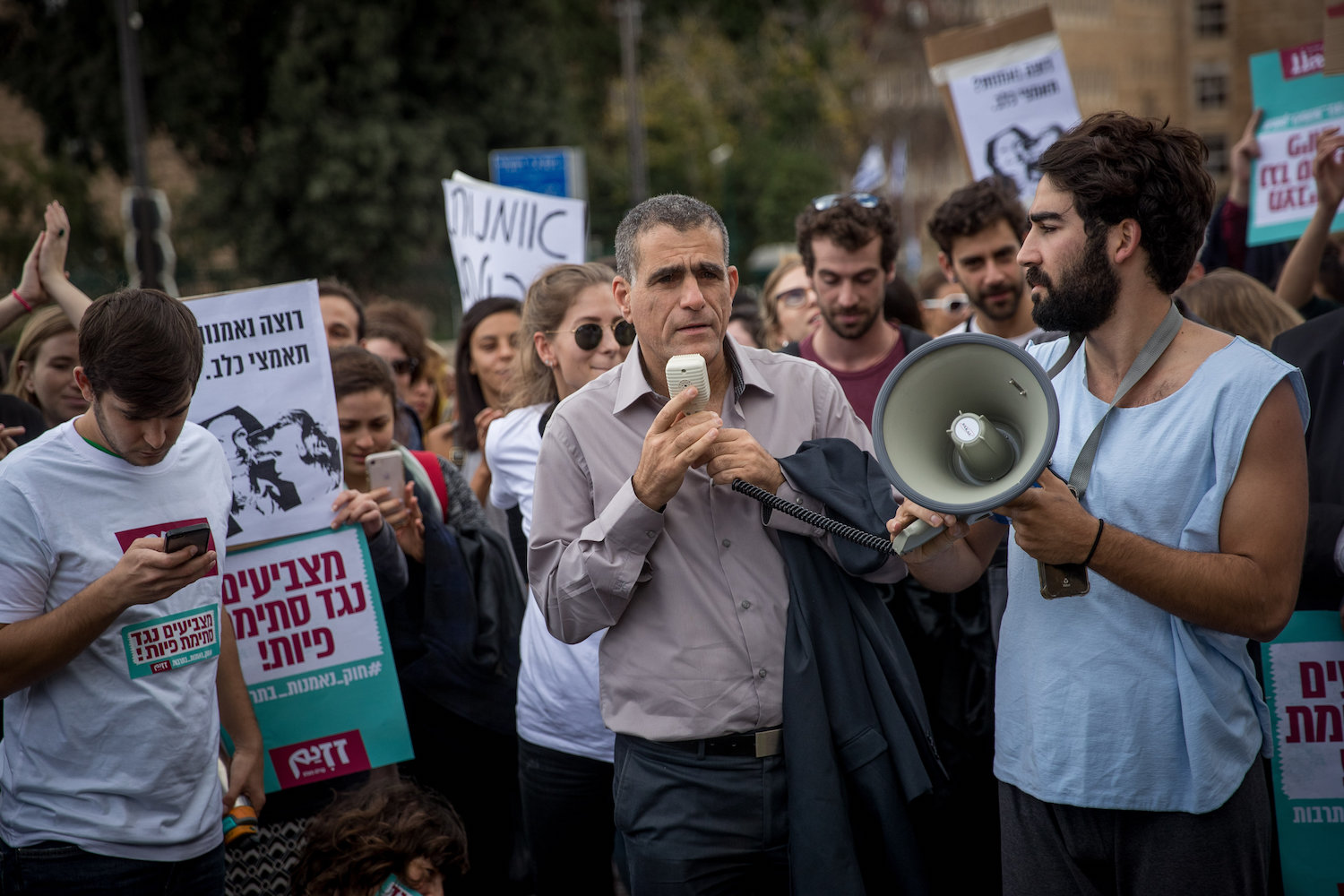
You agree that Meretz today has ministerial responsibility for the policies of occupation, which are identical to those of Netanyahu. What remains of Meretz’s political program vis-a-vis the occupation?
This government includes, for the first time, cooperation between Jews and Arabs, and we hope it will help Israelis understand that we can work together. This cooperation should continue beyond the Green Line. Meretz’s ministers and MKs are trying to work together with Palestinians in the occupied territories, including the PA. We continue to point out the injustices of the occupation. I demonstrate in Sheikh Jarrah every Friday and post about it on social media. I go to actions in the occupied territories almost every week, posting pictures of casualties, visiting families of Arab and Jewish casualties.
Does this change the minds of your partners in government? Bennett, Gantz, Sa’ar, Shaked, Liberman?
My goal is not [to address] Liberman but the Israeli public. The problem is not the government but the Knesset. There is no reason to expect Liberman or Bennett to support an agreement with the Palestinians. We are asking the Israeli public to help elect a Knesset that is more amenable to an agreement.
It turns out that when you’re in the Knesset you speak for the Bennett coalition, and when you’re in Sheikh Jarrah you speak for the Sheikh Jarrah coalition. Is there any coherent message coming out of Meretz today?
I think the public understands complex messages like ours. The reasons I mentioned for the partnership in the Bennett government are valid, and our arguments for opposing the occupation are as strong as ever.
If you could choose the two most important issues in the struggle against the occupation, which would you choose?
Freezing settlement building and [procuring] entry permits for Palestinian laborers.
Do you have any particular personal frustration — a struggle that you were invested in that failed?
The struggle to stop settlement outposts.
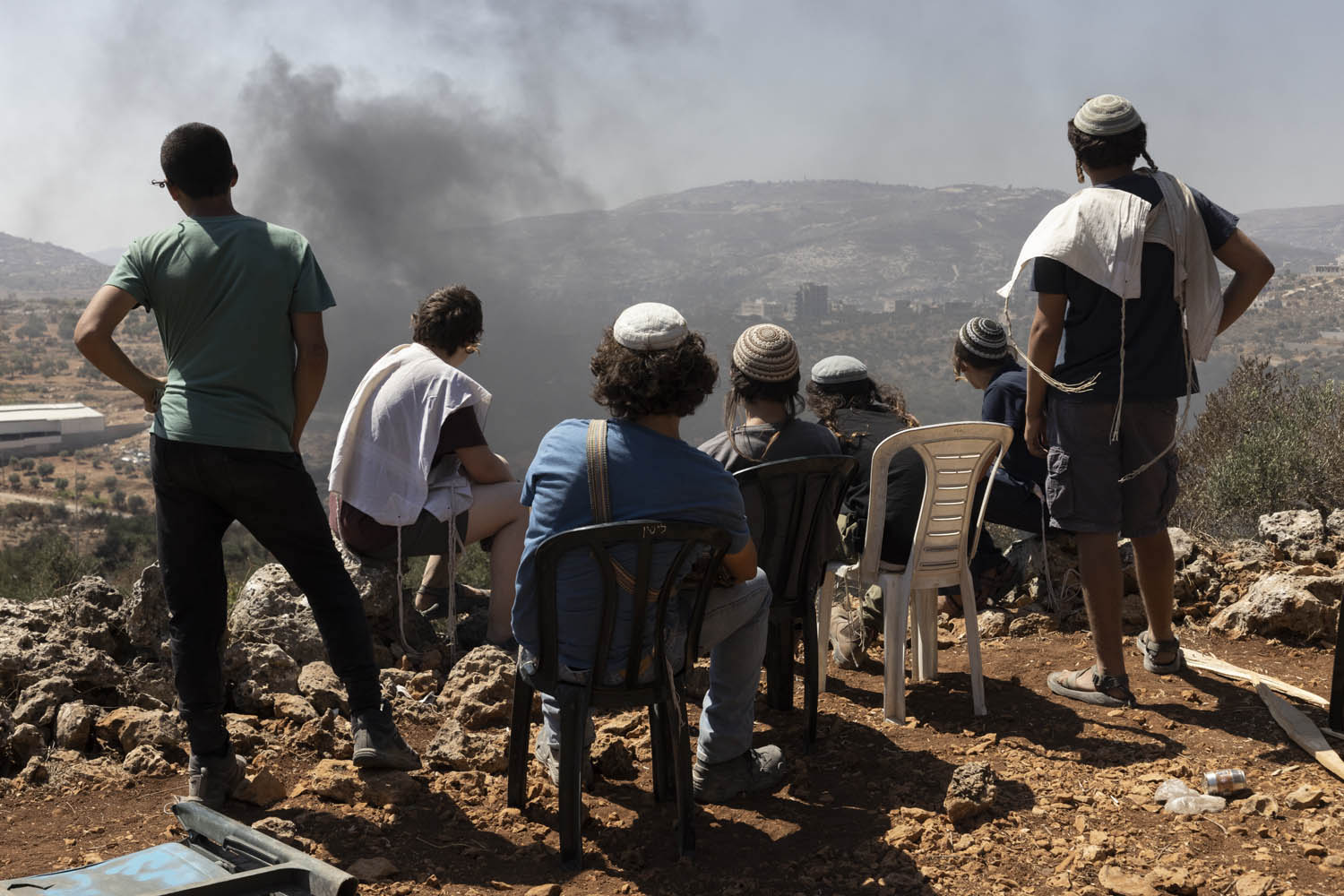
‘We can bring down a government, but we can’t stop a military campaign’
Back in 2019, Raz and fellow Meretz MK Issawi Frej [who now serves as Israel’s Regional Cooperation Minister] led an attempt at changing the party into a fully-fledged Jewish-Arab one, with an Arab party chairperson alongside a Jewish one. Raz claimed at the time that there was a large segment of the public that was yearning for this kind of partnership. After the attempt failed, he said: “Meretz was the first to come up with this idea, and it will also be the first to implement it in the future.”
What’s happening [with this idea] today?
It’s almost happening. We have nine representatives, and three of them are Arab.
You have already gotten into a public spat with Ghaida Rinawie Zoabi, an Arab MK with Meretz, about her threats to bring down the government should Israel initiate a military operation [in Gaza].
I said that we don’t make the decisions — the cabinet does.
That’s not the point. Is there a rupture in Meretz between Jews and Arabs over your decision to join the government?
Not every disagreement is related to the rift between Jews and Arabs. Issawi Frej and [Meretz MK] Ali Salala did not exactly concur with Rinawie Zoabi either.
And yet, does belonging to such a government not harm your ability to appeal to the Arab public?
No. We do not have decision-making power on military issues. We can bring down a government, but we will not be able to stop a military operation if it starts.
So why don’t you threaten to leave the government in such a case, the way Rinawie Zoabi did?
One should not make threats they cannot make good on.
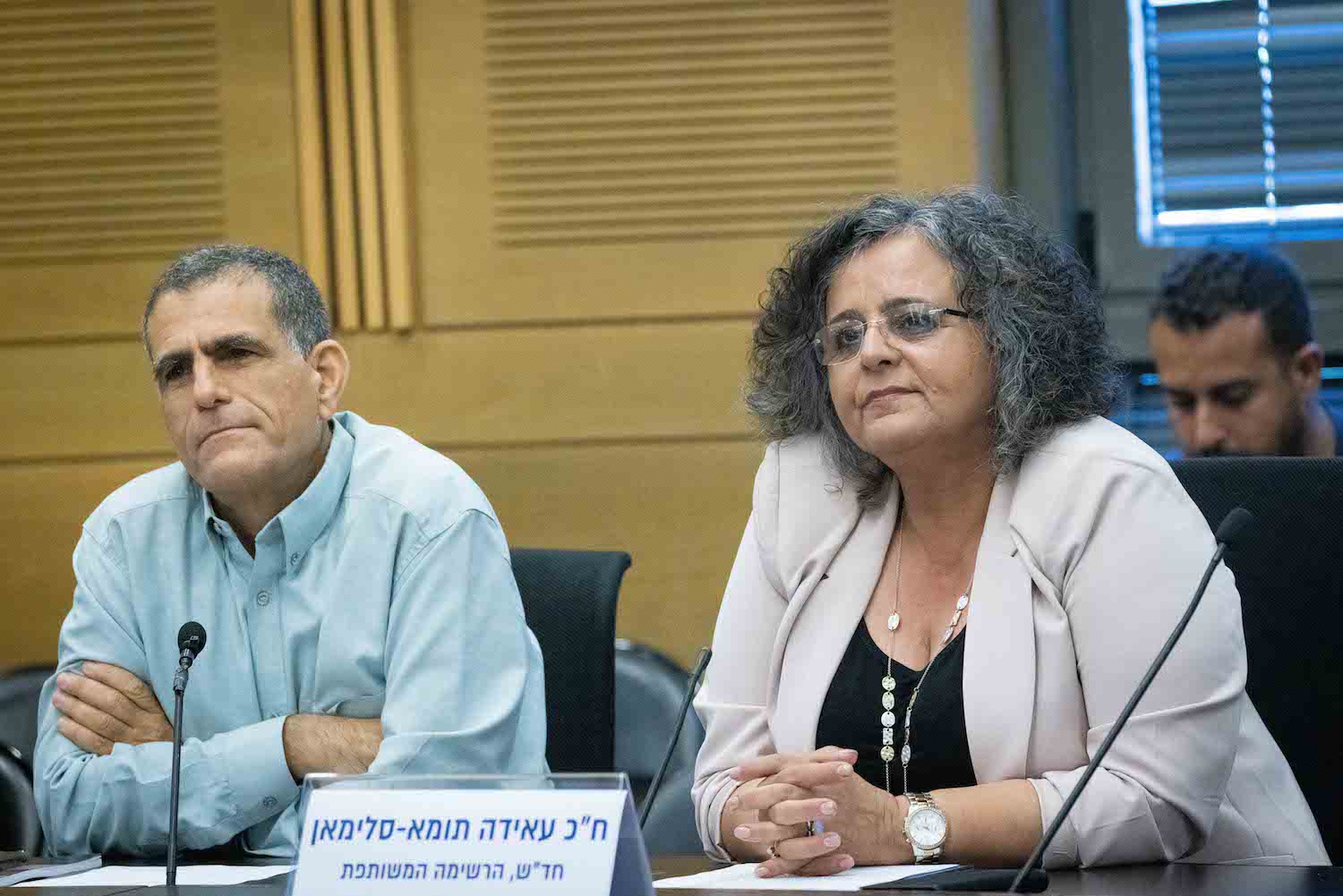
In your recent conversation with [Hadash MK] Aida Touma-Suleiman, she said [regarding your positions on Palestinian political prisoner Khalida Jarrar, and the failed vote in favor of the Citizenship Law that bans Palestinian family unification]: “Meretz’s conduct in the coalition… shows that the gap between Meretz and Hadash is not at all on tactical questions… Mossi respects military courts, and I oppose them because they are the occupation’s tool of oppression.” You have also admitted that being in the government distances you from the strategic goal of Jewish-Arab partnership. Does the fact that you brought on an Arab minister and two Arab MKs compensate for this rift?
There are several developments here in opposite directions. There is the Jewish-Arab government, but some of its elements are indeed conservative, and that is not what we wanted.
We have a Jewish-Arab government in which the right wing plays the central role.
Correct. And at the same time, Meretz is closer than any other party over the last 40 years to being a Jewish-Arab party.
Not in terms of its activists.
I’m not sure about that. I think Issawi Frej has many Meretz supporters. The public sees the representatives in Knesset, not party meetings.
I was asking about the grassroots activists.
[Raz ignores the question] Another issue is the split between Meretz and the Joint List. Aida Touma-Suleiman has always opposed unification between the factions. For her, Jewish-Arab cooperation can only be realized within the framework of Maki [the Israeli Communist Party] and Hadash [of which Maki is a part]. It is a fact that most of the Arabs in the Knesset voted in favor of the Citizenship Law [seven in favor versus six against, with two abstainers].
Are you proud of [Ra’am Chairman] Mansour Abbas’ vote in favor of the Citizenship Law? This is a politician who preferred Netanyahu to the current government.
In Netanyahu’s eyes, Mansour Abbas was a last resort, almost the worst possible option.
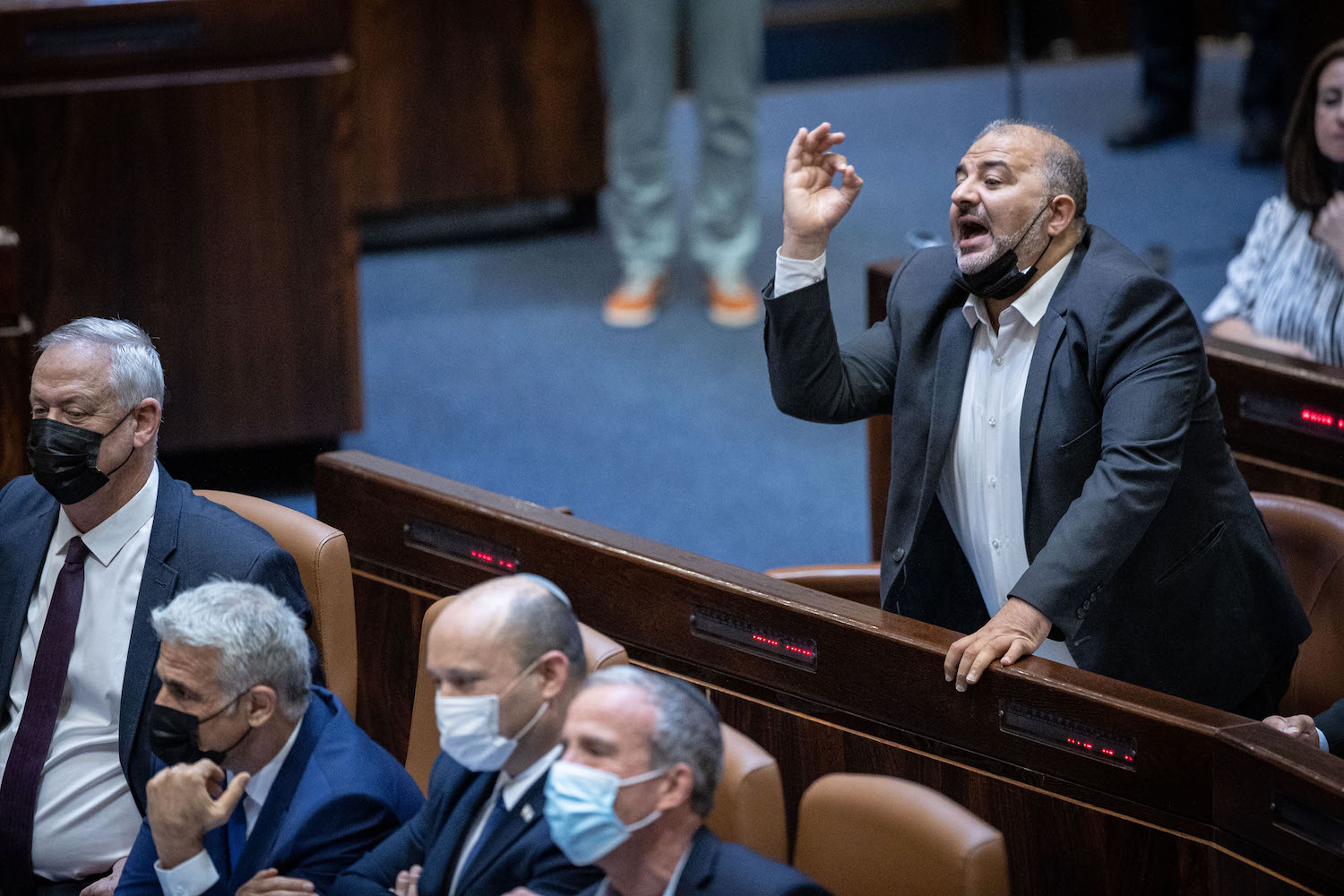
So you are saying that the only option to build a Jewish-Arab partnership is under the banner of the right? The so-called great achievement of Arab-Jewish partnership today is your vote in favor of the Citizenship Law?
No, but Touma-Suleiman’s claim that Meretz’s vote expresses a rift between Jews and Arabs is factually incorrect.
Why not? Maybe she understands the concept of partnership in terms of true equality.
I repeat what I said earlier: even before this vote, I did not hear from her that she was interested in cooperating with Meretz.
So now you’re expecting an increase in support by the Arab citizens of Israel for Meretz?
I hope so, but I do not plan my strategy according to electoral potential.
Let’s talk about Meretz’s strategy. Will the hawkish faction of the party, which today is represented by MK Yair Golan [a former major general in the Israeli army], agree to turn the party into one based on real Jewish-Arab partnership?
If you had asked this faction a year ago if they would agree to a list made up of one-third Arab representatives, they would say no.
The same way Liberman agrees to it in the government today?
My answer relates to Meretz: today this partnership is accepted by everyone.
After your representatives voted in favor of the Citizenship Law.
I expect Jewish-Arab partnership that advocates for human rights and equality.
You mean a partnership that opposes the Citizenship Law?
Yes. It is important for me to say that after our part of Meretz initiated [the move toward Jewish-Arab partnership in the party], it was Nitzan Horowitz who translated it into the language of reality. He is the one who convinced MK Ilan Gilon to rescind his candidacy [in the primaries] to allow an Arab representative to be elected.

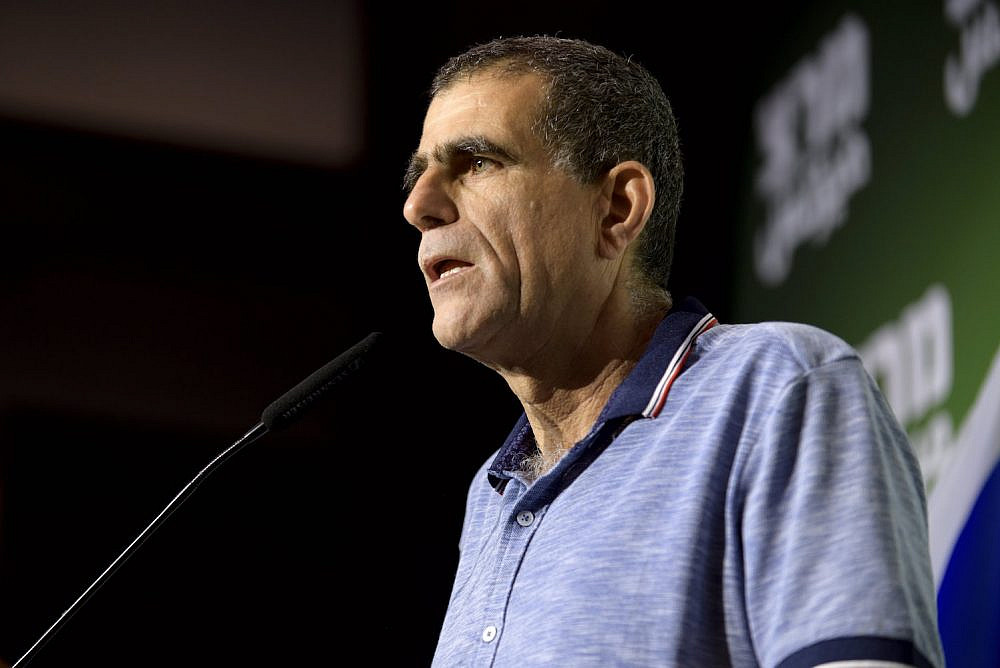

No comments:
Post a Comment
Note: only a member of this blog may post a comment.